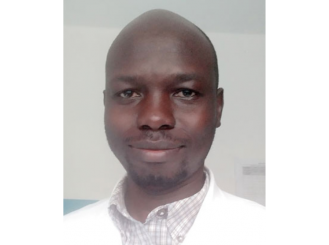Nov 07, 2022
By Jimmy O’Hara, Conquer Cancer
In Uganda, a 63-year-old patient with HIV-associated lymphoma needs nuanced care. This aggressive disease combination does not yet have an effective solution, and can be especially toxic for patients in sub-Saharan Africa, where HIV is prevalent and oncologic resources are limited. The patient, who takes antiretroviral therapy (ART) to manage HIV, starts chemotherapy in tandem with ART. However, this drug pairing can sometimes be incompatible, and his condition worsens. His doctor, Clement Dove Okello, MMed, MBChB, a clinical researcher at the Uganda Cancer Institute, may have a solution.
Censoring ART
“My patient was diagnosed with treatment-induced toxicity due to the combination of chemotherapy and ART. Although most ART are compatible with chemotherapy, increased grades of toxicities, such as anemia, have been described in patients treated with a combination of chemotherapy and a zidovudine-containing ART regimen,” said Dr. Okello.
Supported by a 2018 Global Oncology Young Investigator Award (GO YIA) from Conquer Cancer, the ASCO Foundation, Dr. Okello launched a retrospective study assessing the feasibility of two chemotherapies for treating patients with HIV-associated lymphoma. Dr. Okello based the premise of his GO YIA research on pausing ART while patients receive chemotherapy.
“With the focus of our study on withholding ART during chemotherapy while monitoring the HIV viral load, this patient was offered the option for the remaining three courses of chemotherapy,” said Dr. Okello.
Validating Chemotherapy Options
With protected research time from the GO YIA, Dr. Okello and his team evaluated the viability of CHOP or DA-EPOCH, two chemotherapy combinations for treating patients with non-Hodgkin's lymphoma. Patients were divided into two groups, one receiving CHOP and the other receiving DA-EPOCH. Dr. Okello recruited and trained research assistants and a statistician to examine treatment response in relation to patient data like age, sex, comorbidities, type and stage of lymphoma, ART regimen status, and number of chemotherapy cycles received.
Dr. Okello's findings countered a common belief that DA-EPOCH is not a practical approach for patients in sub-Saharan Africa due to treatment toxicity and lack of supportive care.
“We demonstrated that treatment of HIV-associated lymphoma with a DA-EPOCH regimen was feasible in the sub-Saharan Africa setting. As such, many patients have benefited from this approach,” said Dr. Okello. “Although our study did not show superiority between DA-EPOCH and CHOP, it indicated that DA-EPOCH can at least be offered in the sub-Saharan African setting. Subsequent studies can now build upon this information for further research.”
Patients taking ART in sub-Saharan Africa now have a viable option for treating HIV-associated lymphoma. Dr. Okello’s GO YIA results can be useful for providers in these settings when crafting subsequent research and prescribing chemotherapy to patients taking or withholding ART.
Patient Impact
Dr. Okello’s patient moves forward with DA-EPOCH and pauses his ART regimen. This research-informed choice proves lifesaving.
"My patient completed up to six courses of chemotherapy without taking the ART and without worsening of the HIV viral load. He registered remarkable improvement of his symptoms with no new complications during treatment,” said Dr. Okello. “After completion of the chemotherapy, he was then restarted on the ART. Since then, he has been in perfect physical condition and so thankful for the intervention we offered him. I felt satisfied.”

